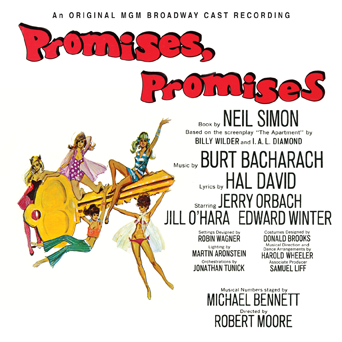It’s hard to believe it, but it’s been almost six years since the world lost the great Jerry Orbach to cancer. His presence is still greatly felt, through TV reruns, frequent airings of Dirty Dancing on TV and he is fondly remembered by practically every person I know. Even though Orbach hadn’t been on Broadway since the mid-80s, he epitomized the essence of NY theatre for so many. You could see him at opening nights, presenting at the Tony Awards or even just riding the subway. While Law and Order gave him that household recognition, he was still just a New Yorker.
He got his start off-Broadway as a replacement in The Threepenny Opera and was the first El Gallo in The Fantasticks. The star also appeared in an acclaimed 1964 off-Broadway revival of The Cradle Will Rock. Broadway called in 1961 when Orbach was cast as the bitter puppeteer Paul in Carnival, with a score by Bob Merrill and direction by Gower Champion. It was a stage adaptation of the MGM hit Lili, about a naive French orphan who joins a seedy carnival where she becomes a star attraction with a Kukla, Fran and Ollie type connection to the puppets. The show was a big hit, earning a Tony for leading lady Anna Maria Alberghetti and running 719 performances. In this clip, from The Ed Sullivan Show, Alberghetti starts off with “Yes, My Heart” leading into Orbach’s stirring rendition of “Her Face”:
%CODE1%
Orbach received his first Tony nomination in 1965 for his well-received Sky Masterson in the limited run revival of Guys and Dolls at Lincoln Center. The following season he was back on the boards supporting Ethel Merman in the 20th anniversary revival of Annie Get Your Gun. But it was 1968’s Promises, Promises for which Orbach would win his Tony Award. A musical based on the 1960 hit The Apartment, the musical version updated the story to 1968 with contemporary costuming and sensibilities and was a mammoth hit, running three years. On the Tony telecast, before Donna McKechnie leveled the joint with “Turkey Lurkey Time,” Orbach performed his act one charmer “She Likes Basketball”:
%CODE2%
While Jerry always hit home runs in the musical department, he didn’t have as much success in plays. His first Broadway drama was The Natural Look which opened and closed on March 11, 1967 (and included Gene Hackman, Doris Roberts, Brenda Vaccaro and Andreas Voutsinas in the cast). He fared somewhat better with 6 Rms Wiv Vu in 1972 opposite Jane Alexander. Orbach returned to musicals in 1974 when he was signed on for Mack and Mabel. However, director Gower Champion abruptly replaced him with Robert Preston just before the start of rehearsals and no parties involved were ever given a clear reason why.
However, it was back to the top the following year when he created the role of the conniving lawyer Billy Flynn in Bob Fosse’s production of Chicago. Orbach held his own opposite leading ladies Gwen Verdon and Chita Rivera. The show was ahead of its time in terms of its cynical tone and was swept away by A Chorus Line during awards season (though the revival would prove far more timely). On the Tony telecast, Orbach represented the company with his first act number “All I Care About”:
%CODE3%
As it turned out, 42nd Street would be the final Broadway credit for both Jerry and director Gower Champion. The show, based on the 1933 film, was a juggernaut success, praised for being an old-fashioned throwback and run for 8 1/2 years. It’s opening at the Winter Garden in August 1980 is the stuff of legend, and it was Orbach (who was playing impresario Julian Marsh) who called for the curtain after producer David Merrick’s shocking announcement of Champion’s death earlier that same day. Orbach, who enjoyed long runs, stayed with 42nd Street for years until he proved too expensive for Merrick. On the Tonys, he led the company, including Wanda Richert and Lee Roy Reams with the second act showstopper “Lullaby of Broadway”:
%CODE4%
And for the road, here’s Jerry singing “Try to Remember” from The Fantasticks on the 1982 TV special “The Best of Broadway.”
%CODE5%

